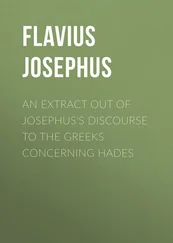I am beginning to have an odd feeling of — it would be absurd to call it uneasiness: a sense of disorientation, and of not knowing what is going on around me — or rather, of thinking that I know but not being sure that I do. There is no good reason for it: one or two things have happened which have disconcerted me, but of a very trivial kind. Perhaps I am developing some interesting neurosis.
I suppose it’s due to the heat, and too much retsina, and everyone talking a language I don’t understand. It may also have something to do with our misgivings about Deirdre: it’s difficult to be altogether at ease with people of whom one has entertained such disagreeable suspicions. I don’t quite like to say anything about this to Sebastian: I never happened to mention to him our doubts about Deirdre’s death, and now they have been resolved it seems unfair to cast any sort of shadow over his friendship with the Demetriou family.
Sebastian, you see, is in a state of rapture — starry-eyed and walking several feet above solid ground. He has been invited to become the English translator of the work of Constantine Demetriou: this (he says) is the most extraordinary and wonderful honor that could possibly be imagined. I do not think myself that the honor is all on one side; but it is no use saying so to Sebastian. You see how unkind it would be of me to spoil things.
Apart from the impression he has made on our host, Sebastian has also become an object of interest to Lucinda and Camilla: he is, after all, the only young man within range who is not related to them. After breakfast, therefore, they did not go away to paint pictures (as Lucinda was supposed to be doing) or to read Salmond on Torts (as Camilla was supposed to be doing) but remained in the garden to assist in our entertainment. They naturally proposed those forms of amusement which would show them to best advantage: Camilla, who looks splendid in a tennis dress, suggested tennis; Lucinda, who looks magnificent in a bikini, suggested a swim.
I rather enjoyed the tennis and swimming: a long time ago, you may remember — when I was first at Oxford, and before I was corrupted by left-wing intellectuals like you and Sebastian into drinking coffee all night and not bothering to keep fit — I used to be rather keen on that sort of thing. Sebastian, however, took no part in either, and from the point of view of Camilla and Lucinda making an impression on him it was rather a waste of effort.
They would have done better to see if they couldn’t dash off a swift elegy or two for translation from Greek to English, for so far as I could judge there was nothing else which might have distracted Sebastian from his conversation with Constantine Demetriou. They had begun talking about Homer, and a passionate discussion had developed of the historical accuracy of the Iliad and the Odyssey. Sebastian, as a respectable classical scholar, felt obliged to maintain that hardly a word of them was true, and that Homer had invented the whole thing. Our host is of the opposite school of thought:
“Yes, yes, yes, Sebastian, my dear friend, I know what the archaeologists say. Because they can’t find a tin hat with the name of King Agamemnon on it, they say that King Agamemnon did not exist and the Greeks never came to Troy and that Homer made it all up — the whole city of Troy and all the ships and armies of the Greeks — just like that, out of his imagination. But you, Sebastian, who are not an archaeologist but a poet, and know how difficult it is to imagine anything — even a small thing, like a bird or a flower or a fold in a girl’s dress — how can you think such a thing is possible? Our poor Homer of all people, who one would swear was worse than any of us, worse than your Shakespeare even, and could only describe things just as he saw and heard them, because he had no imagination at all. So that even when he is talking about the immortal gods he doesn’t know how to give them a proper dignity and mysteriousness, but makes them sound like some farmer and his wife that one met last week in the taverna. Do you think such a person could invent whole cities and armies and systems of government? Po-po-po-poh.” This is what the Greeks say when they wish to express great astonishment and disbelief.
Sebastian, listening to this, looked like an atheist hoping for conversion.
“And when it comes to the kings and the great heroes he is even worse,” went on our host. “He has to pretend that they behave like his own friends and acquaintances — fellow poets, probably, and other riff-raff of that sort — and would drink and tell lies and sulk and quarrel over women and prize money. But everyone knows, of course, that kings and heroes and the leaders of great nations could not possibly behave like that. That is how Homer has given us poets a bad name, Sebastian. People think we are all slanderers and blasphemers, who have no respect for anything and do not understand the difference between great men and everyone else. No one sees how unfair this is on respectable, well-behaved poets like you and me.”
The discussion of Homer led to the first thing which disconcerted me. The sun had risen high enough, by this time, to discourage any strenuous activity, and Lucian and Leonidas had joined the rest of us in the garden to drink retsina and eat olives. With the flattering implication that Camilla and I would be especially qualified to comment on the question, our host asked us how one would translate in English the Homeric expression themis —which seems to mean something like law, justice and general good behavior.
Camilla adopted a robustly positivist approach, saying breezily that law had nothing to do with justice, but was simply whatever Parliament told one to do, whether it was right or wrong. Feeling that I was expected to present the other side of the case, I trotted out the argument about “just” not simply meaning “good” but referring specifically to the virtue of treating like cases alike; this (I said rather pompously) is also an essential feature of the concept of law, and any law or legal system which lacks this quality is not only capricious and oppressive but cannot properly be termed law at all. I have had a good deal of practice with this argument — it comes in useful when you have a judge who doesn’t want to follow a precedent in your favor — and it went down extremely well with our host: he clapped his hands and said “Bravo!”
“And if you agree,” I went on, “that there is that sort of necessary connection between law and justice, and if you think that that’s what Homer would have meant by themis , I suppose it’s expressed in English by the phrase ‘the rule of law.’”
“Ah no,” said Constantine Demetriou, disappointed in me. “No, surely that can’t be right. That is the phrase used by people like Millie’s father — if you will forgive me saying so, Millie — to mean that people dressed up as policemen can do what they like and everyone else must do as they’re told.”
At this point Lucian, who had not so far seemed much interested in the discussion, looked up from his wineglass and said, “Oh, I think you’re wrong about that, Costas. I don’t think Uncle Rupert would approve of people who dressed up as policemen. Do you think he would, Cindy?”
“Oh no,” said his sister, making her eyes very wide and gooseberry-like, “I don’t think he would at all.”
They were both then overcome by merriment, chortling and gurgling as if at some brilliant piece of wit. The rest of the family, though mildly perplexed, seemed accustomed to the twins having private jokes which were meaningless to anyone else. To me, however, when I came to think about it, it was far from meaningless: I saw that if Lucian and Lucinda had somehow heard of the raid on Rupert’s flat by the spurious policemen, their mirth was not at all unaccountable.
Читать дальше












